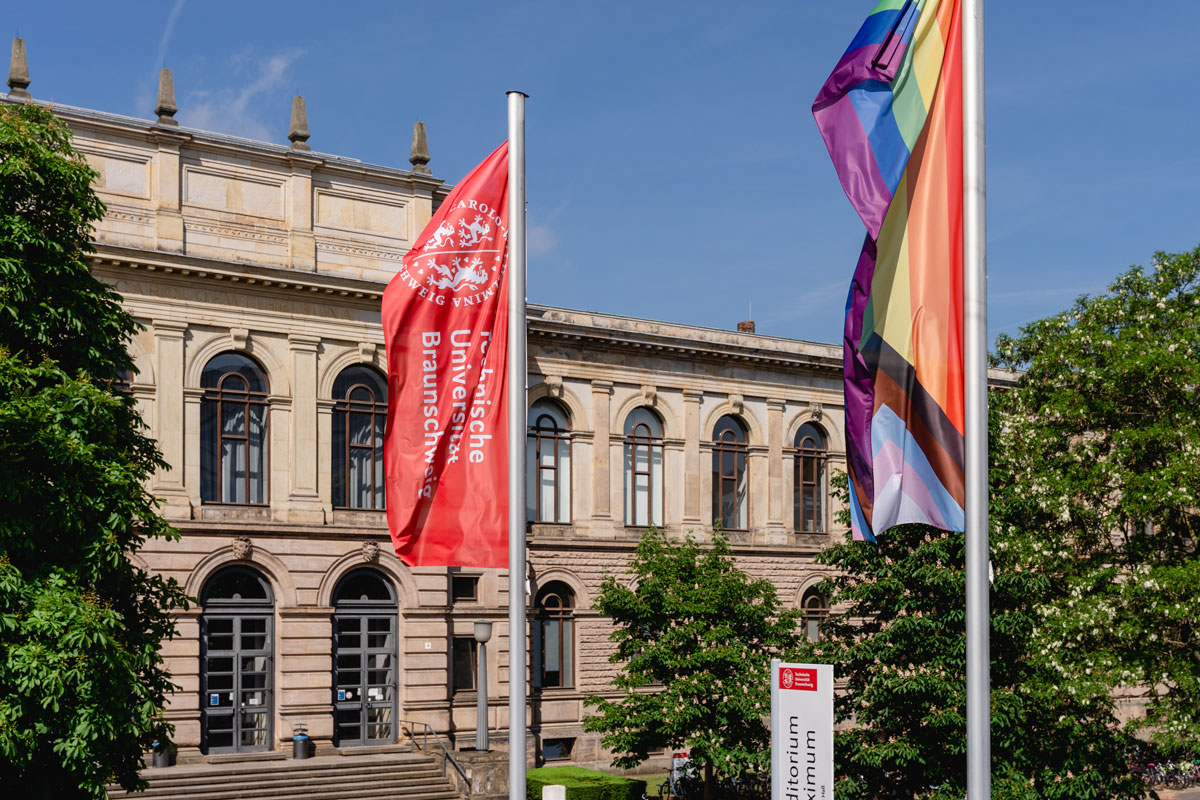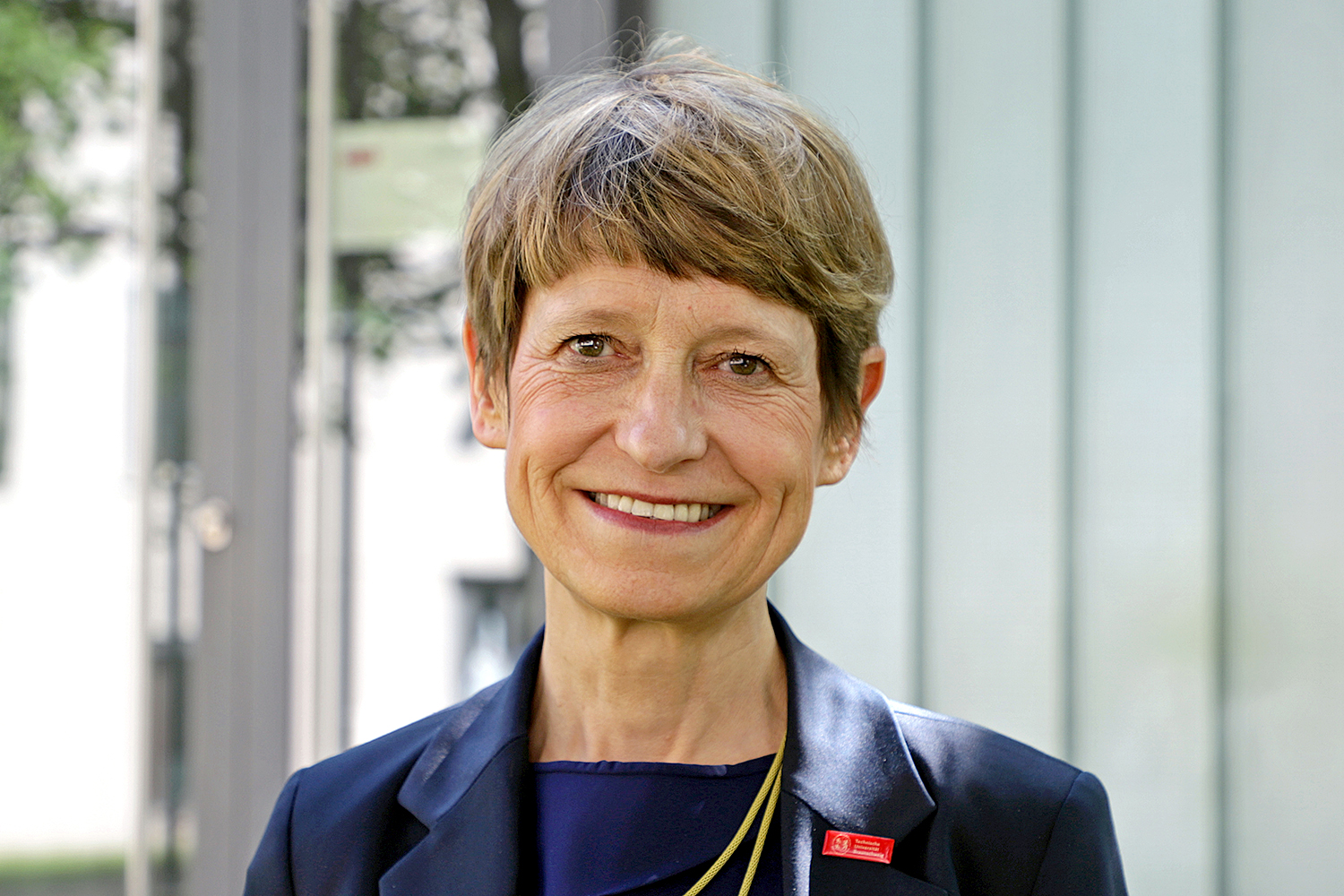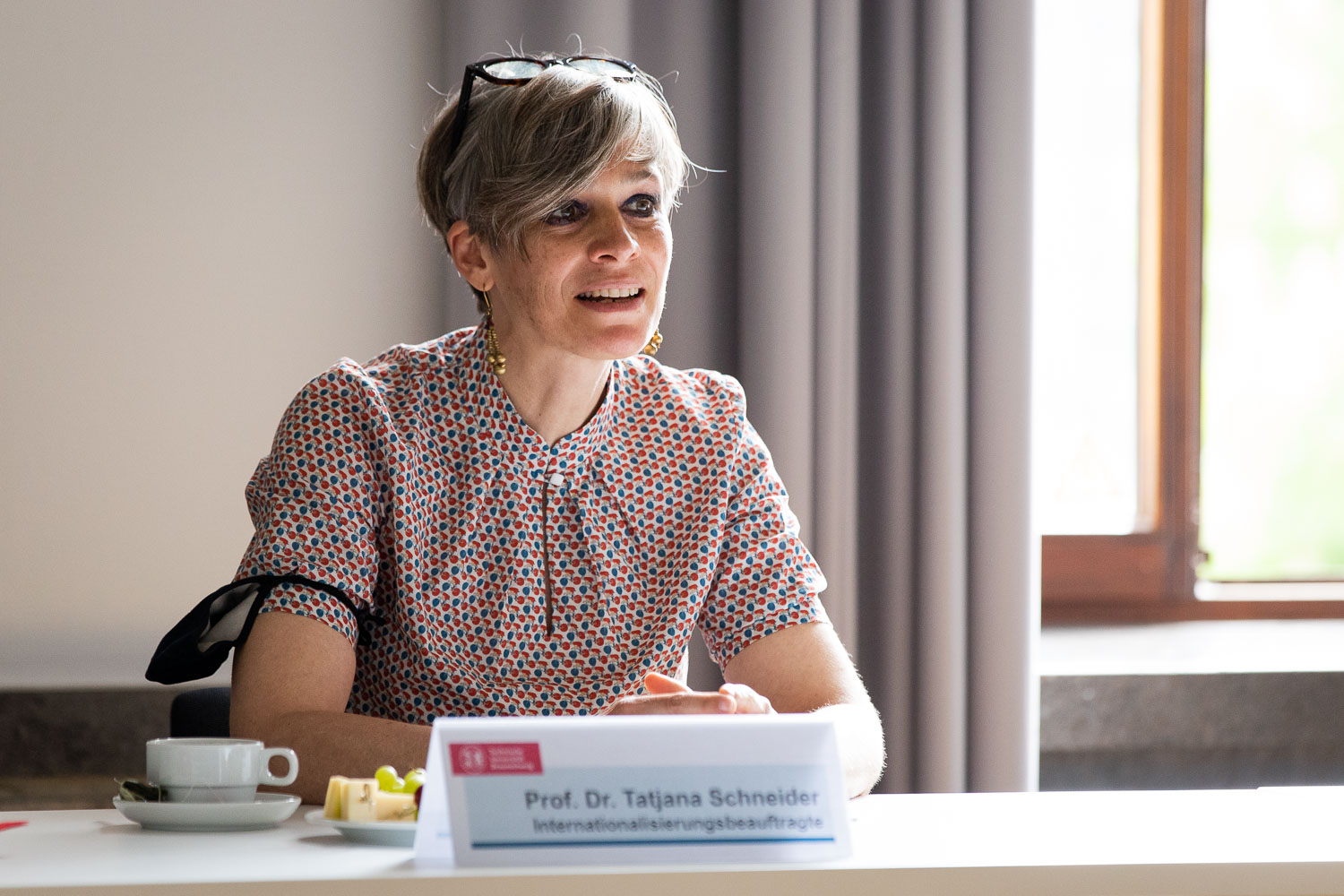Anchoring internationalisation firmly and permanently TU Braunschweig is the first university to undergo Re-Audit²
All good things come in threes. This also applies to the internationalisation audit of TU Braunschweig by the German Rectors’ Conference (HRK). What started in 2015 with the first methodical audit called “Internationalisation of Universities” and continued in 2018 with the re-audit procedure, is now seeing its third instalment with the 2022 Re-Audit² under the motto “Go global”. But what exactly is behind this “audit”? What does the procedure encompass? And why are we doing it for the third time now?
The term “audit” comes from the Latin audire, meaning to hear. So basically, an audit process can be seen as a process of listening. The Internationalisation of Universities audit is a service offered by the German Rectors’ Conference (HRK) and provides comprehensive advice on internationalisation from an independent panel of experts, tailored to a given university’s profile. The audit process aims to help universities strategically organise their internationalisation efforts, further develop them and firmly anchor them within their institution in the long run. TU Braunschweig is now the first university to test its internationalisation strategy yet again during a Re-Audit² procedure.
For TU Braunschweig President Professor Angela Ittel, this is only logical: “We have achieved tremendously positive development in recent years, yet we still face major challenges if we want to meet the demands of successful, competitive internationalisation. The consequences of the pandemic and the growing challenge of dealing with (politically) problematic regions – not least of all the recent war in Ukraine – demand a reassessment of the aims of our internationalisation process. The HRK’s third audit procedure is a great opportunity to address these challenges in a structured way, guided by “critical friends”. At the same time, this commitment will help TU Braunschweig to continually reflect on its internationalisation efforts and set a positive example for other institutions. After all, “internationalisation is a very dynamic field of activity”, as Ittel puts it.
The course is set
During the successful audit procedures of 2015 and 2018, TU Braunschweig set a course for the university’s internationalisation and has received recommendations for further efforts in this area. Many of these recommendations have already been put into practice. The foundation of an International House, the establishment of an interdepartmental Internationalisation Committee and the development of a roadmap for internationalisation are just a few examples. The number of measures promoting internationalisation continues to increase, within both the university’s departments and its administration. Now is the time to take these achievements to the next level, to increase TU Braunschweig’s attractiveness to international students, expand its international networks and increase internationalisation in its teaching.
“There is a need for action in terms of each of the university’s pillars – Research, Studies & Teaching, Governance & Administration and Knowledge and Technology Transfers. In Research for example, it is important to create the infrastructure and context that will enable our scientists to work and research globally with partners of interest. In the area of Studies & Teaching, the development of an English-language curriculum and the recruitment of international students is a huge field of work. And of course the international visibility of our achievements is very important as well”, President Angela Ittel says, adding further goals: “The next step in Presidency & Administration is to consistently organise administrative processes bilingually and to recruit top international executives. In the area of Knowledge Transfers, we want to raise our activities to an international level and gain visibility. I am confident that the Re-Audit² process will drive us forward decisively in all of these endeavours.”
To reach these goals, a core audit team was formed of representatives from the International House and the Strategic University Development Unit, with Professor Tatjana Schneider, TU Braunschweig’s Internationalisation Officer, as advisor. On behalf of the President, this core audit team will manage the entire procedure, including six subgroups covering different topics, where faculty and staff members will work out specific measures to implement during the Re-Audit². Behind all of this is the university’s Internationalisation Committee, overseeing the process as a steering body. Heinrich Schwabecher, Head of the International House, attaches great importance to getting the entire university on board and especially to involving students in the process. “We want to anchor the internationalisation process firmly and permanently throughout every part of the university. Working together, we will succeed in making TU Braunschweig more visible internationally.”

In the 2015 and 2018 audit processes, TU Braunschweig set the course for the internationalization of the university. Now it is a matter of further developing what has been achieved so far. Photo: Simone Fürst/TU Braunschweig
First milestone reached
By involving the General Students’ Committee (AStA) and the Student Parliament (StuPa), the student perspective will be part of the process as well – something that pleases AStA Chairman Luca Kienel: “For the students, the Re-Audit² process is of great importance. By contributing our point of view, we have the chance to help shape a significant part of our university’s strategy for years to come.” Besides studying abroad, Kienel considers it especially important to create meeting places for local and international students on campus. This will help to create a positive and successful study experience for both groups, for example through integration projects that include both sides.
The first ideas to implement during the Re-Audit² process were put on paper during a meeting of the Internationalisation Committee in October 2021. Now, not quite seven months later, the first milestone has been reached: on 23 May, the core audit team submitted its preliminary draft on implementation planning to the HRK. That draft contains goals, topics and measures to be discussed with the HRK experts during a planning workshop scheduled for 24 June.
After that, TU Braunschweig will have until the end of the year to revise the draft, before the two-year implementation phase begins in 2023. Early in 2025, the HRK experts will visit TU Braunschweig again, this time to evaluate and conclude the audit process. President Angela Ittel is confident that the audit will be of immense value to TU Braunschweig: “I am certain that we will succeed in taking the necessary measures to advance our university’s internationalisation, following international benchmarks. I want us to remain open so we can continuously re-invent ourselves, set new goals and dare to become a global university.”
3 Questions for… Professor Tatjana Schneider, Internationalisation Representative
Since 1 April 2022, Professor Tatjana Schneider is TU Braunschweig’s new Governance Board-appointed Representative for Internationalisation. She is Head of the Institute for the History and Theory of Architecture and, as a researcher, has collected more than her fair share of experience abroad. Among other things, she taught and researched at the University of Sheffield and the University of Strathclyde in Glasgow. In “3 Questions”, she tells us a little about the Re-Audit² process.
As the recently appointed Internationalisation Officer, how do you see your role in the Re-Audit² process?
Internationality is a mindset that goes hand in hand with careful foresight and integrative practice, touching on many different aspects. With this audit, we have the chance to look at a range of very different activities with an overarching view, create links and improve central support structures. It is important to me to be in constant dialogue with the university’s community, pay close attention and listen, to then work on achieving a common understanding of internationalisation that at the same time offers a lot of room for individual configurations.
Where do you see the biggest potential in the Re-Audit² process?
One important goal of the Re-Audit² process is to firmly anchor the opportunities that internationalisation offers in everything that we do here at the university – be it teaching, research or other areas. If international affairs currently tend to be seen as a separate field of activity, burdened by additional effort and more work, the broad foundation of this process can help us see internationality as the new natural way of things, turning it into an integral part of the university’s self-image.
What is the biggest challenge in this?
I see the Re-Audit² process as a kind of condenser, giving additional visibility to internationalisation and intelligently synergising our energies. This will be a lot of fun and unleash great creativity, but it will also be hard work. That is why it is so important to keep the value and purpose of the audit firmly in mind, in respect of the university’s overall development – beyond the necessary important structural adjustments – so we can create the best possible conditions for learning, researching and working together.
Text: Henrike Hoy/International House


